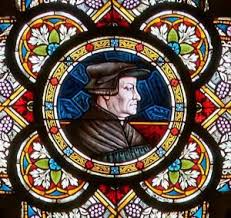For unto us a child is born, unto us a son is given: and the government shall be upon his shoulder: and his name shall be called Wonderful, Counsellor, The mighty God, The everlasting Father, The Prince of Peace. Isaiah 9:6
LUTHER - Pro-Christmas
"In his sermon entitled ‘To Us a Child Is Born’ (preached on 25th
December, 1531), Luther honed in upon the faith of the shepherds who,
“in spite of what their five senses told them […] concluded: this is the
King, the Savior, the great joy of the people. There was nothing great in the hearts of those shepherds save for the words of the angel.
In fact, they were so great that except for them the shepherds saw
nothing else. They were filled with those words just like drunkards and
they made them known without being in the slightest bit concerned about
what the great lords in Jerusalem and the Sanhedrin would have to say.
On the contrary, without an inkling of fear, they preached of the poor
Christ”.
ZWINGLI - Anti-Christmas
"At the other end of the Evangelical spectrum was Ulrich Zwingli.
Zwingli got rid of every ecclesiastical festive day in Zurich. Given that Zwingli embraced the regulative principle of worship, that is, churches should only do that which is explicitly commanded in Scripture, he opposed any celebration which was not mentioned in the Bible."
Zwingli got rid of every ecclesiastical festive day in Zurich. Given that Zwingli embraced the regulative principle of worship, that is, churches should only do that which is explicitly commanded in Scripture, he opposed any celebration which was not mentioned in the Bible."
CALVIN - Neutral
"Although Calvin accepted the regulative principle of Zwingli and not
Luther’s normative principle, he believed that each local congregation
could decide how best to celebrate (or not celebrate) the festive
season. In spite of the fact that some have asserted that Calvin was in
the anti-Christmas camp, the Frenchman wrote two letters in January 1551
and March 1555 outlining his stance with respect to Christmas.
In
the January 1551 letter, Calvin explained that the Geneva authorities
had done away with festive days before he arrived in the city whilst
openly confessing that he did –personally speaking- celebrate “the birth
of Christ”. In the March 1551 letter, Calvin hit out at those
who criticized certain churches which opted to commemorate the festive
period. According to the Geneva Reformer, such questions were “matters
of indifference”.
EvangelicalFocus



